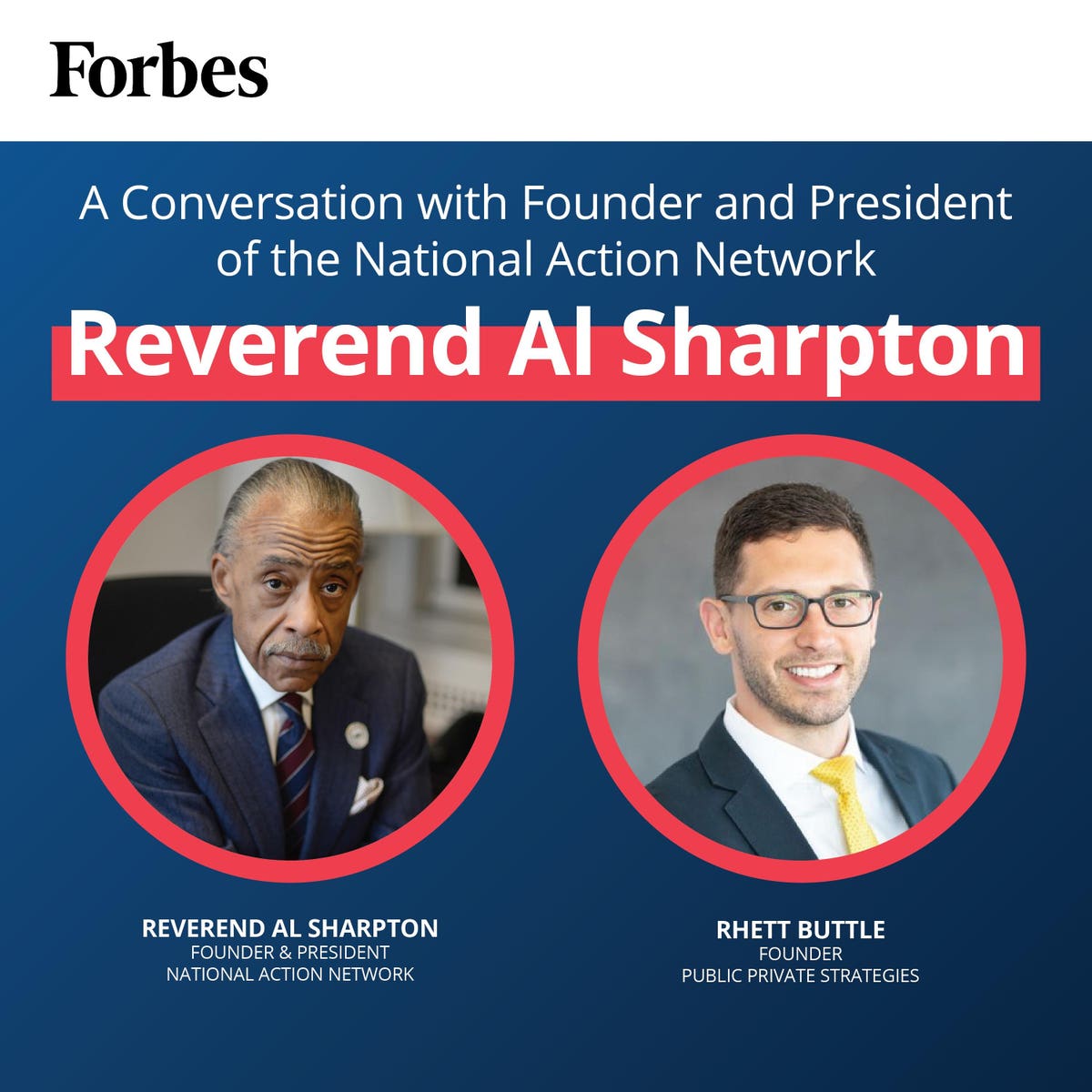“Let us remember America is big enough for everyone to do well and reach their God-given potential,” writes President Joe Biden in a piece for The Washington Post commemorating the 60th Anniversary of the March On Washington. The march for equality and fairness is an economic one and there is still much work to do.
A recently released report from the Black Economic Alliance (BEA) Foundation found that over 41% of Black Americans are economically insecure, which comes as little surprise given that the wealth gap between white and Black Americans has actually increased since the 1980s. As the report further elucidates, these statistics are not just numbers – they have a very real impact on Black Americans’ ability to achieve economic success, which only 27% of Black respondents in the survey felt was possible for them to achieve at their current salary levels.
The data on business ownership is also striking: Black Americans comprise roughly 14% of the population, yet only own 2% of employer firms. However, as the BEA Foundation’s report makes clear, this disparity is not due to Black Americans lacking enthusiasm for entrepreneurship. In fact, Black respondents in their survey were more than twice as likely as white respondents to say that they would use an unexpected financial windfall to start their own business.
Moreover, a recent survey of entrepreneurs from Reimagine Main Street, “Trust and Access to Capital 2023”, found that at least one-third of all respondents lack confidence to fund an unplanned $5,000 business expense, rising to 58% of the Black business owners in the sample. But, if properly supported, the economic benefits of Black entrepreneurs are plentiful: if the share of small employers owned by Black people were at parity with the share of Black people in this country, we would have nearly 800,000 more businesses and millions more jobs added to the economy.
This week is the 60th Anniversary of the March on Washington, so I sat down with the Reverend Al Sharpton, Founder, President, and Chief Executive Officer of the National Action Network. We discussed the 60th anniversary, his advice for entrepreneurs, the role that the public and private sectors can play in ensuring a successful economy, and how his work bridges the gaps in economic opportunities for all individuals and businesses.
Below is our conversation, edited for clarity.
Rhett Buttle: Reverend Sharpton, as we approach the 60th Anniversary of the March on Washington, can you elaborate on the lasting significance of this historic event and its impact on Black businesses as we also celebrate Black businesses this month?
Reverend Al Sharpton: The 60th Anniversary of the March on Washington is what we call the Continuation March from the March 60 years ago, when Dr. Martin Luther King, the NAACP, Roy Wilkins, and others marched. The original March was around jobs and justice, as well as dealing with the issues of that day. Now, 60 years later we want to have the same energy and the same kind of fervor but around the issues that face us today. The economic issues in 1963 were centered on jobs, labor, and trying to get employment for people that have been excluded from the labor market. Now, we are still fighting for Black individuals who are underemployed.
The issues today are also economic. Even in a sound economy, almost 6% of Black individuals are still unemployed and our wages are lower on average. The wealth gap between Black families and white families is almost as much of a gap as it was in 1963. On the business side, we’ve made progress where we now have Black representation on boards of major corporations, Black CEOs of Fortune 500 Companies, and Black billionaires. None of that was imaginable 60 years ago, but still today there is racial factor that we’re seeing especially with the attack on Affirmative Action. Now opponents of full and equal opportunity to participate in the economy have taken to the corporate world.
The Supreme Court decision on Affirmative Action has now encouraged people to go after groups, like the Fearless Fund in Atlanta. The practical application of the Supreme Court decision not only cuts off Affirmative Action in education, but it empowers opponents of a level playing field to go after contracts, grants, and investments funds created for Black individuals. This will tremendously impact Black business, because Black business needs a place within banking and financial institutions. Black businesses have historically had a problem with banking and financial institutions, resulting in the struggle to receive seed money. We need to have a fair share of contracts in our communities, otherwise we end up going backwards to 60 years ago.
The reason we need the government and the private sector to repair the damage is because we were excluded through law and policy based on race. So, you must include us based on the exclusion that we suffered. And, this March is so important for business and economic interests to repair the historic exclusion of Black individuals from contracts, C Suites, and boards.
Rhett Buttle: You founded the National Action Network (NAN) back in 1991. What have you learned while being the CEO and Founder of NAN and what should the business community know about the work that you’ve accomplished?
Reverend Al Sharpton: We started the National Action Network with $200 and the five people who enabled us to incorporate. One of the five was a Black cop in Brooklyn, New York named Eric Adams. He’s now the Mayor.
I’ve learned that fervor and enthusiasm is not enough to run a business. When we started the National Action Network, we had no money. We now average $8-10 million in annual revenue with no federal, city, state, or major foundation funding. We wanted to be free enough to deal with social issues without worrying about reactions from funders. So, we’ve raised money through our fundraising efforts within our membership and through companies that believe in what we’re doing, with no strings attached. I’ve learned that you have to be prudent. I was the last guy to learn how to run a business. So, we brought in people to run this business.
Rhett Buttle: Racial disparities in economic opportunities have persisted for generations. What steps does NAN take to advance economic justice for diverse-owned businesses?
Reverend Al Sharpton: We must work across the board with Latino/a, Asian American and Pacific Islanders, and LGBTQ+, as well as other minority groups that have suffered bigotry. This year, our March will have speakers from all different minority communities, including the Jewish community. Usually individuals that are anti-Semitic, are also anti-Black, anti-Latino/a, etc. We need our haters and adversaries to see us as more united than they are.
We need to sit down and figure out ways that we can work together to strengthen all of us. I’ve learned that as we built these coalitions, if we can go to CEOs or pension funds united, it strengthens us because there’s more in numbers. We’re solid and consolidated. It is not just about representing one silo, it’s about representing what is fair.
Rhett Buttle: The intersection of civil rights and economic prosperity is a central focus of NAN’s work. Could you share some specific examples of how your organization has helped bridge the gap in economic opportunities for marginalized individuals and businesses?
Reverend Al Sharpton: I’ve had conversations with President Biden and Secretary Yellen to ensure that the Black community is receiving the money coming down from recent legislation, like the Bipartisan Infrastructure Law. If there is not something specifically designed in the plan to include minority communities, then we won’t see Black and Brown construction companies compete effectively as a part of this funding.
Something that’s difficult for me to see is when I’m riding in a city and I go through the Black community, and there’s construction but those handling the business are not representative of the people in the community. Part of what NAN does with this Administration, as well as during the Obama-Biden Administration before it, is ensure that we’re being intentional about being inclusive.
Now, I’m not giving them a list of recommended businesses to reach out to, but I’m saying that if these people are a part of the population they need to be included in these tax funded programs. The business has to reflect the population in each area, otherwise as taxpayers we’re paying to be excluded.
Rhett Buttle: What advice would you give to aspiring and established minority entrepreneurs?
Reverend Al Sharpton: I tell Black business owners that you have to run a business. Don’t have us fight to get you in the door for you to not perform. Go and show that you can get more of a return than the people you are competing with do. Our job is to open the door and your job is to perform. My job is to make sure I have a management team that ensures NAN has the $ 8-$10 million to be spent on the issues..
I’ve learned that in order to affect business you have to do business properly yourself. And, you have to be in on those doors that you open for Black and minority business owners today. They need to understand that we cannot be their excuse for not performing. We want people that can deliver and perform. Then, it makes business sense as well as social sense. Many people are in business to make money. They’re not in business to make a social statement.
Rhett Buttle: What would you add?
Reverend Al Sharpton: I think that we should remember that in this 60th Anniversary spirit that Dr. King’s last effort was economic. He wanted to do a Poor People’s march. He also had Operation Breadbasket to address the private sector on how they were dealing with distribution with Black companies and economic rights. The year he died, I was 13 years old and I became the youth director of the Chapter of Operation Breadbasket in New York.
We talk a lot about the social side of Dr. King’s legacy, but not the economic side. Now, 60 years later, his son and I are trying to continue that effort.
Read the full article here





